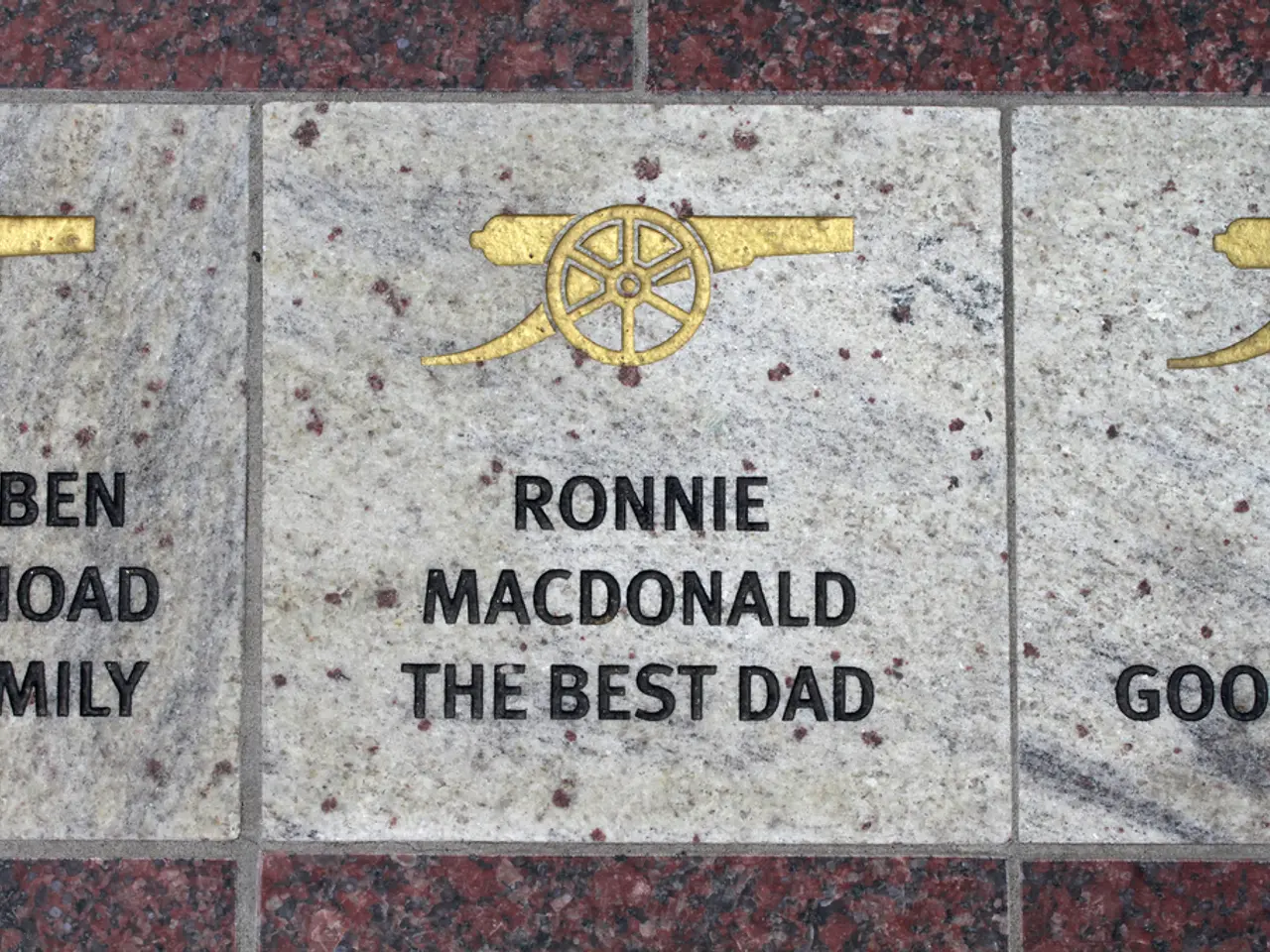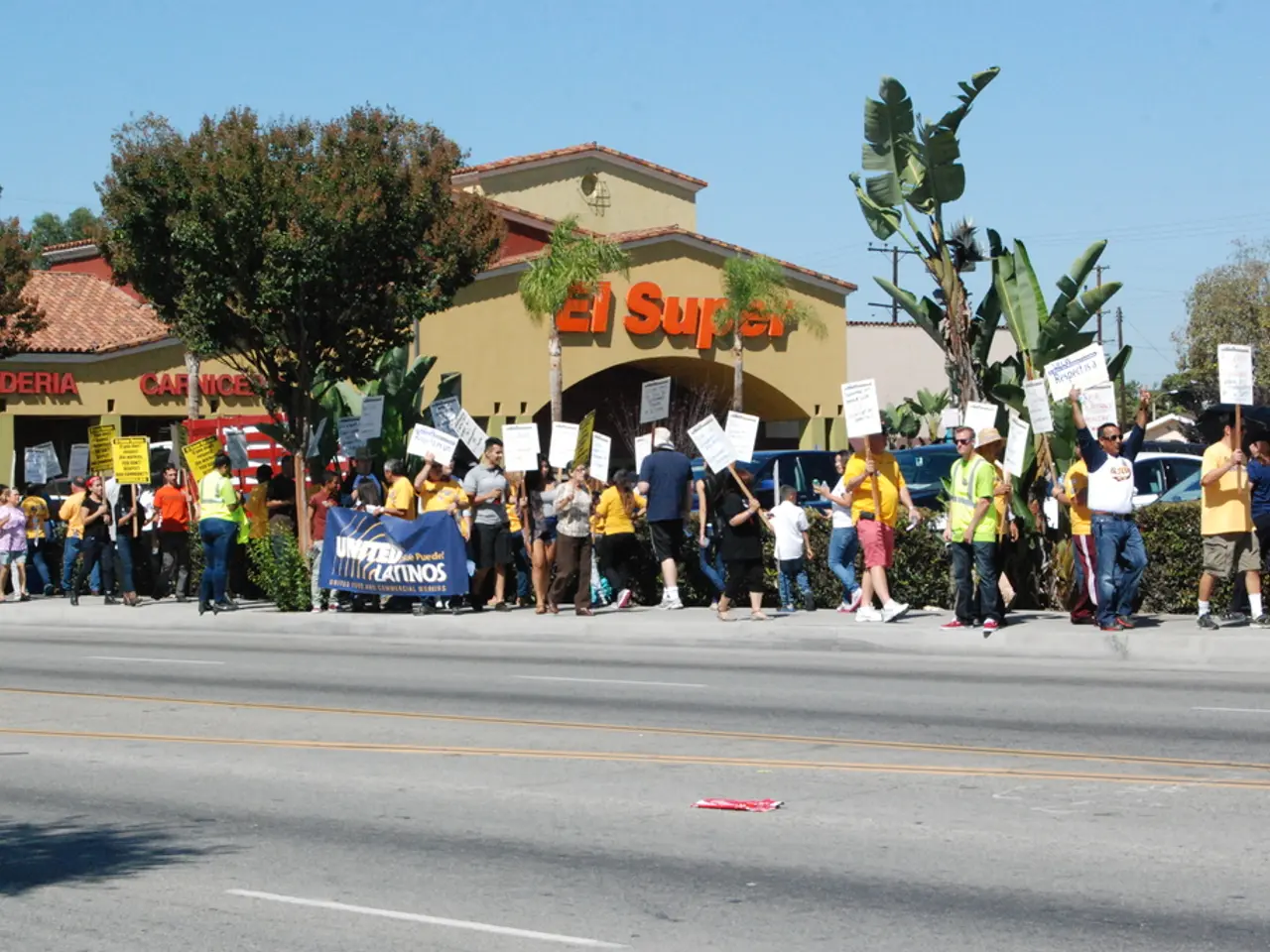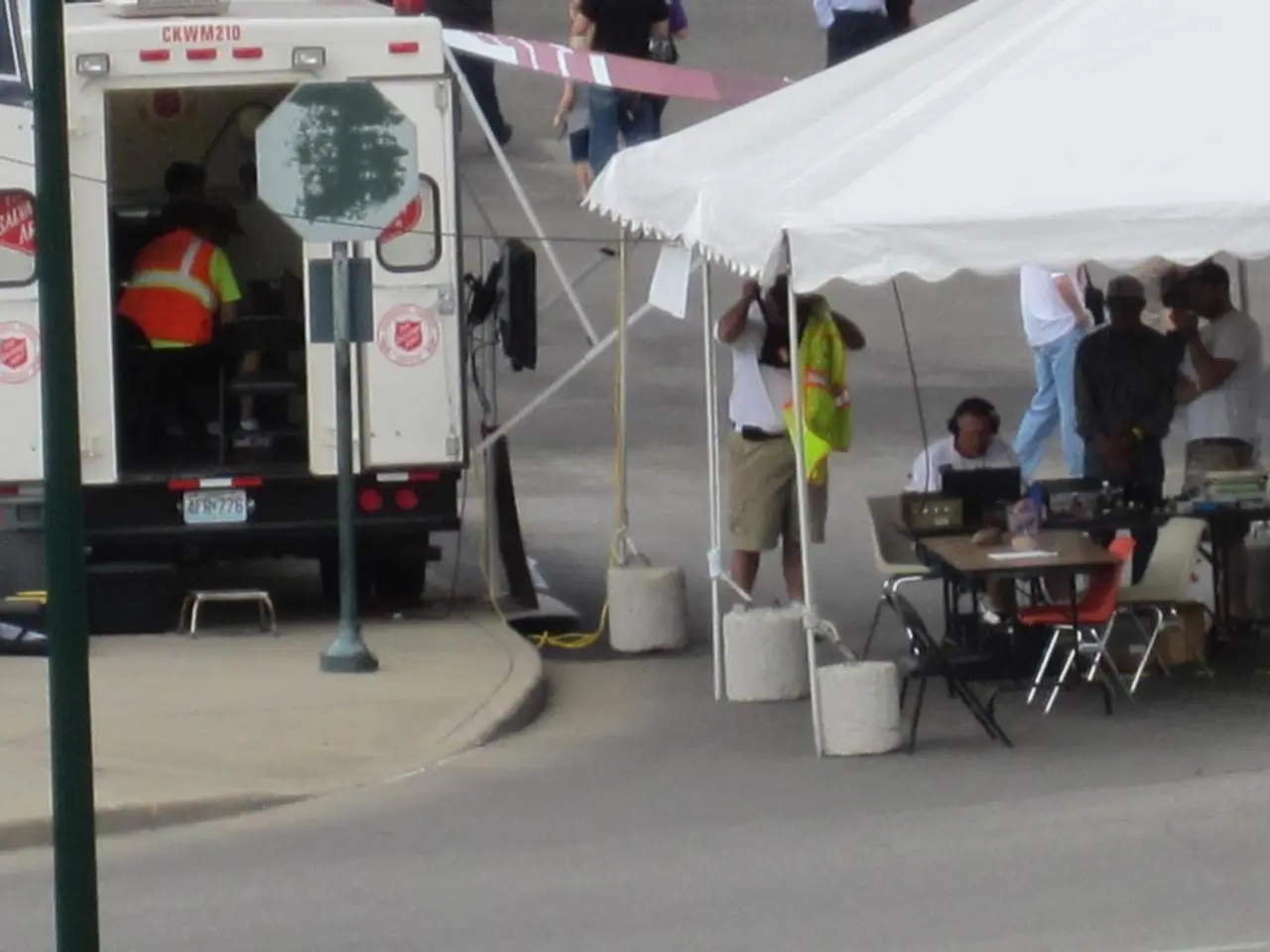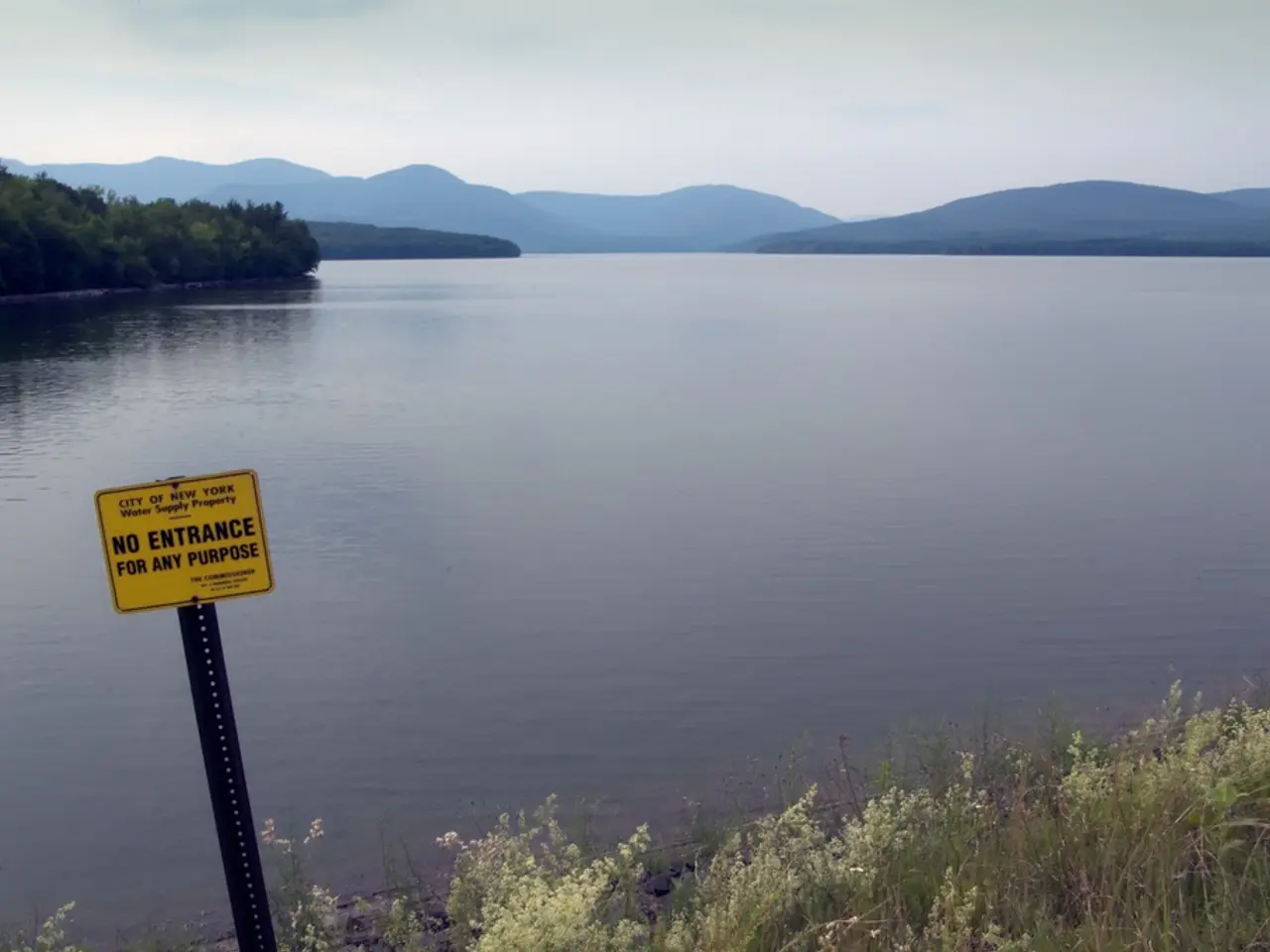Celebration at the 13th European History Forum: Recall during Tumultuous Era
In Eastern and South-Eastern Europe, the year 1945 holds a complex and ambivalent significance. It marks the end of brutal Nazi occupation, but also the beginning of decades of Soviet domination and repression.
Ukraine, for instance, has moved its official day of remembrance from 9 May to 8 May, aligning with European memory culture and distancing from Soviet-era symbolism. This shift reflects the ongoing efforts to redefine national identities and histories in the region.
The Potsdam Conference of July-August 1945 solidified the division of Europe into rival blocs controlled by the Western Allies and the Soviet Union. This event marked the onset of Soviet influence and occupation in much of Eastern and South-Eastern Europe, leading to the imposition of communist governments and the establishment of the Eastern Bloc.
The legacy of this division has informed national memories and identities across these countries. In many cases, narratives of liberation from Nazi rule are intertwined with those of occupation and loss of sovereignty.
One such example is Croatia, where Vjeran Pavlaković of the University of Rijeka portrayed two principal sites of memory: Jasenovac, a former concentration and extermination camp, and Bleiburg, Austria, where retreating Ustaša troops and civilians were killed by Yugoslav partisans.
The pivotal year of 1945 is being re-examined for its impact on European unity. Elma Hašimbegović, Director of the Historical Museum of Bosnia and Herzegovina, highlighted the significance of the Battle of Sutjeska and the museum's role in remembrance work.
In Albania, Andi Pinari from the University of Tirana discussed the intricate composition of resistance movements during the Second World War and the ongoing lack of consensus regarding the issue of collaboration.
Sabina Ferhadbegović focused on the prosecution of war crimes in socialist Yugoslavia, where survivors played an active role in the legal process.
The United Nations War Crimes Commission was established even before the war ended, with resistance fighters in the occupied territories collecting evidence and compiling specific case files.
The digital remembrance project "Light of the Fireflies" involves young people from Belgrade and Berlin visiting memorial sites related to Nazi persecution.
The 13th European History Forum was held in Berlin in May 2025, with the theme "80 Years of Narratives about the End of World War II." The online platform dekoder.org publishes texts and documentaries on perspectives of the Second World War that had previously been largely marginalised, such as the women's perspectives on the war.
Sergej Rumyantsev of the Centre for Independent Social Research in Berlin provided insights into the commemorative practices in Azerbaijan and Georgia, including the ongoing debate about awarding Baku the Soviet-era title of "Hero City."
Albrecht, the Executive Director of the Heinrich Böll Foundation, emphasized the continued relevance of debates surrounding the war's end, particularly in light of Russia's war of aggression against Ukraine.
Oksana Khomiak from the Kyiv-Mohyla Academy discussed the ongoing process of historical decolonisation in Ukraine, particularly in relation to Soviet narratives.
Janine Fubel used the example of the Sachsenhausen concentration camp to show that, despite growing divisions between East and West, the Allied powers continued to collaborate closely in prosecuting Nazi crimes.
Claudia Weber of the European University Viadrina emphasized the unique sense of historical urgency in 2025, as the current war has reawakened Europe to the realities of warfare.
In this sense, 1945 can be a powerful historical touchpoint for renewed commitment to unity in Europe, encouraging reconciliation and cooperation across former dividing lines. However, achieving this depends on contemporary political will and the ability to address the complex legacies of post-war history in the region.
[1] Albrecht, Sergej Rumyantsev, Oksana Khomiak, and Yaroslav Hrytsak. "Remembering 1945: A Divided Legacy and a Call for Unity in Eastern and South-Eastern Europe." European History Forum, 2025.
[2] Kashtalian, Iryna. "Resistance in Belarus: A Dual Structure." European History Forum, 2025.
[3] Reznyk, Daria, and Yatsenko, Anna. "After Silence: Ukrainian Experiences during World War II and the Current Russian War of Aggression." European History Forum, 2025.
[4] Hašimbegović, Elma. "The Battle of Sutjeska and the Historical Museum of Bosnia and Herzegovina's Role in Remembrance Work." European History Forum, 2025.
[5] Pinari, Andi. "The Composition of Resistance Movements in Albania during the Second World War." European History Forum, 2025.
[6] Ferhadbegović, Sabina. "Prosecution of War Crimes in Socialist Yugoslavia." European History Forum, 2025.
[7] Weber, Claudia. "The Unique Sense of Historical Urgency in 2025." European History Forum, 2025.
[8] Fubel, Janine. "Collaboration between the Allied Powers in Prosecuting Nazi Crimes." European History Forum, 2025.
[9] "The United Nations War Crimes Commission: A Precursor to Post-War Justice." European History Forum, 2025.
[10] "Light of the Fireflies: A Digital Remembrance Project." European History Forum, 2025.
[11] "Resistance - Women of Peace and Justice in the Former Yugoslavia and Albania." European History Forum, 2025.
[12] "Commemorative Practices in Azerbaijan and Georgia." European History Forum, 2025.
[13] "The Copernico Portal: Illustrating the End of the Second World War for a Non-Academic Audience." European History Forum, 2025.
[14] Online Platform dekoder.org: Publishing Marginalised Perspectives of the Second World War. European History Forum, 2025.
[15] Sergej Rumyantsev, "Commemorative Practices in Azerbaijan and Georgia," European History Forum, 2025.
Engagement in memorialization efforts has been a key aspect of transformation in Eastern and South-Eastern Europe, with many countries redefining their historical narratives to distance themselves from Soviet-era symbols and narratives. For example, Croatia has focused on sites like Jasenovac and Bleiburg to explore and remember their complex past.
The ongoing political debate over commemorative practices, such as in Azerbaijan and Georgia, highlights the importance of engagement in evaluation and memory culture in the region, serving to inform current discourse in European politics.







